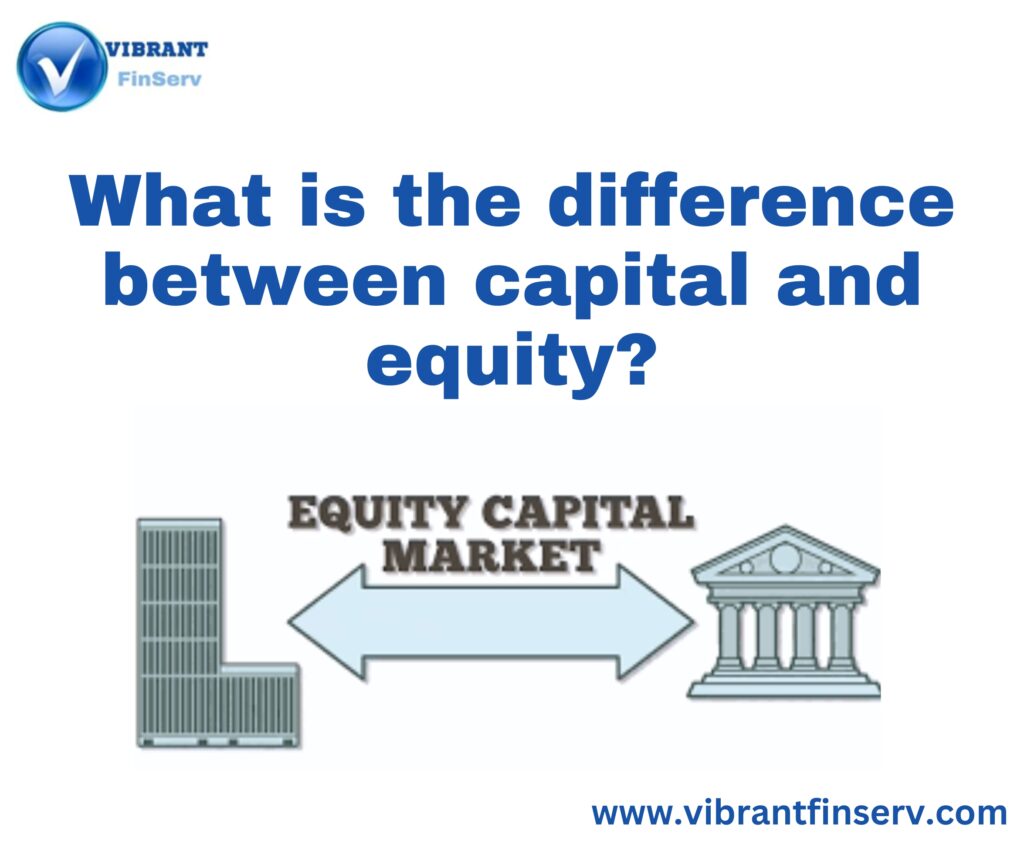Difference between capital and equity
What is Capital?
Capital refers to the resources or assets that a business or individual uses to generate income or grow wealth. It can take various forms, such as:
- Cash: Money that is available for immediate use.
- Assets: Machinery, real estate, or other physical assets used in business operations.
- Investment: Stocks, bonds, or other financial instruments.
In a business context, capital is what’s used to fund operations, purchase equipment, and invest in new opportunities. It acts as the fuel for the business to operate and expand. Capital is often raised through loans, personal savings, or investors.
2. What is Equity?
Equity, on the other hand, represents ownership in a business or asset. It is the portion of the business that belongs to its owners after all debts and liabilities are subtracted. In simple terms, equity is what you own after you’ve paid off everything you owe.
Equity can be broken down into different categories:
- Shareholder Equity: The value that belongs to shareholders in a company.
- Owner’s Equity: The value that belongs to the owner of a sole proprietorship or partnership.
- Home Equity: The value of a homeowner’s interest in their property, calculated by subtracting the mortgage balance from the property’s current market value.
3. Key Differences Between Capital and Equity
Now that we’ve defined capital and equity, let’s explore the key differences between the two.
a. Nature of the Concept
- Capital: Refers to the total resources (financial and non-financial) used in the business.
- Equity: Refers to the ownership interest in the company after debts are paid off.
b. Usage in Business
- Capital: Used to fund day-to-day operations, buy assets, and grow the business.
- Equity: Represents the residual value that belongs to the owners or shareholders.
c. Forms
- Capital: Includes cash, loans, equipment, property, etc.
- Equity: Only represents ownership interest, such as shares in a company or personal ownership.
d. Impact of Debt
- Capital: Can be raised through debt or equity financing.
- Equity: Excludes debt and only represents ownership value after liabilities are paid off.
4. How Capital and Equity are Connected
While capital and equity are different, they are closely related. In many cases, equity is a subset of capital. For example, if a business raises funds through both loans and investments, the total funds are considered capital, but only the investments from owners or shareholders are considered equity.
In financial statements, you’ll often see “capital” used broadly to indicate the funds a company has to work with, whereas “equity” shows the net ownership value.
5. Conclusion: Why Understanding the Difference Matters
Knowing the difference between capital and equity is important for making informed financial decisions. Capital is the broader term that encompasses all the resources used in business, including debt and equity. Equity, however, represents the portion of the business that truly belongs to the owners after all obligations are met.
FAQs

